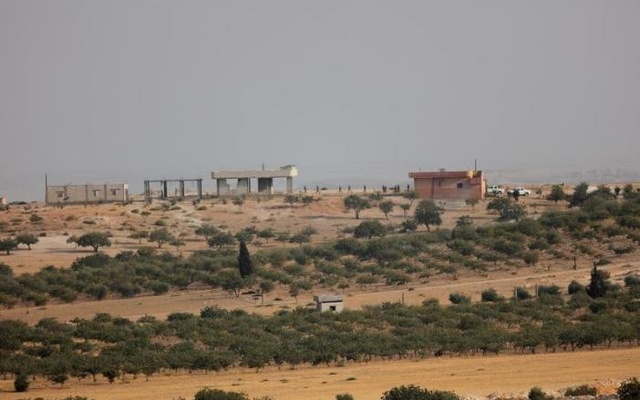Turkish-backed rebels have cleared Islamic State from Turkey’s Syrian border, securing a 90 km (55 miles) corridor and marking a substantial gain in Ankara’s plan to drive out Sunni militants and stop the advance of Syrian Kurdish fighters.
The Turkish-backed advance denied Islamic State its main route to the outside world, through which it has moved fighters and weapons.
It was another blow for the jihadist group, which is under pressure in its self-proclaimed caliphate in Syria and Iraq.
The rebels, mainly Syrian Arabs and Turkmen fighting under the banner of the Free Syrian Army, took charge of the frontier between Azaz and Jarablus after seizing 20 villages from the Sunni hardline group, the Turkish military said in a statement on Sunday.
That puts Turkey in firm control of a stretch of land it sees as a bulwark against the US-backed Syrian Kurdish YPG militia. However, that could sharpen tensions with the United States over Syria policy.
Turkey is fighting a three-decade-old Kurdish insurgency in its southeast and fears that gains by the Syrian Kurdish YPG will embolden militants at home. Turkey considers the YPG a terrorist organisation and an extension of the outlawed Kurdistan Workers Party (PKK).
“We are there to protect our border, to provide for our citizens safety of life and property, and to ensure Syria’s integrity,” Prime Minister Binali Yildirim said in a speech on Sunday, discussing the incursion, which Ankara calls Euphrates Shield.
“We will never allow the formation of an artificial state in the north of Syria,” he told a crowd in Diyarbakir, the largest city in the mainly Kurdish southeast.
The advance took place little more than a week after Turkey launched the Syrian incursion, deploying tanks and air power to support the rebels, who swept into the border town of Jarablus.
On Saturday, Turkey and its rebel allies opened a new line of attack in northern Syria, rolling across the border some 55 km (34 miles) west of Jarablus.
The United States had said on Saturday it some Islamic State targets in the region, but it did not say where.
While the United States and Europe also regard the PKK as a terrorist group, Washington sees the YPG as a separate entity and an effective client in the fight against Islamic State in Syria. That position has caused friction with Turkey, a NATO member and a partner in anti-IS coalition.
‘Terror corridor’
President Tayyip Erdogan on Sunday raised concern about the formation of a “terror corridor” along Turkey’s Syrian border.
Speaking to reporters after a meeting with US President Barack Obama at the G20 gathering of world leaders in China, Erdogan said: “It is our wish that a terror corridor not be formed across our southern border”.

Erdogan has repeatedly said that Turkey’s allies should not be making a distinction between Islamic State and the YPG as both groups pose a threat to Turkey.
Some Kurds have criticised Turkey for its role in Syria. A demonstration broke out along the Syrian border on Friday, where Turkey is building a concrete wall. Police used tear gas and water cannon to drive the protesters back.
At a rally in Istanbul on Sunday, the co-head of Turkey’s Kurdish-rooted Peoples’ Democratic Party (HDP) denounced the incursion into Syria as an “invasion”.
“The government, which says it wants to stop ISIS (Islamic State) with the Jarablus invasion, has no credibility. The invasion of Jarablus is totally an adversarial approach against Kurds and we will never accept it,” Selahattin Demirtas told reporters.
Separately, Anadolu said Turkish warplanes hit four Islamic State positions on Saturday evening in Syria’s northwestern Aleppo province as part of the operation, citing security sources.
The warplanes hit three targets in the al-Kaldi area and another in the Wuguf region, Anadolu said, citing the sources.
Source: bdnews24









